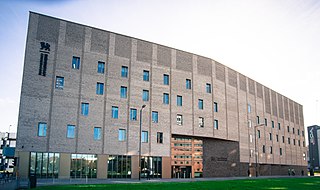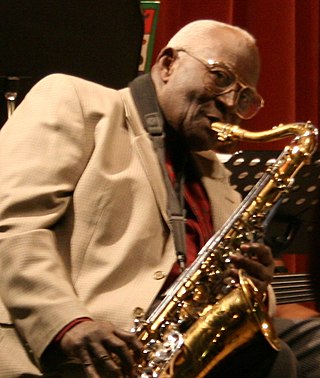
The Aldeburgh Festival of Music and the Arts is an English arts festival devoted mainly to classical music. It takes place each June in the town of Aldeburgh, Suffolk and is centred on Snape Maltings Concert Hall.

Julian Lloyd Webber is a British solo cellist, conductor and broadcaster, a former principal of Royal Birmingham Conservatoire and the founder of the In Harmony music education programme.

The culture of Birmingham is characterised by a deep-seated tradition of individualism and experimentation, and the unusually fragmented but innovative culture that results has been widely remarked upon by commentators. Writing in 1969, the New York-based urbanist Jane Jacobs cast Birmingham as one of the world's great examples of urban creativity: surveying its history from the 16th to the 20th centuries she described it as a "great, confused laboratory of ideas", noting how its chaotic structure as a "muddle of oddments" meant that it "grew through constant diversification". The historian G. M. Young – in a classic comparison later expanded upon by Asa Briggs – contrasted the "experimental, adventurous, diverse" culture of Birmingham with the "solid, uniform, pacific" culture of the outwardly similar city of Manchester. The American economist Edward Gleason wrote in 2011 that "cities, the dense agglomerations that dot the globe, have been engines of innovation since Plato and Socrates bickered in an Athenian marketplace. The streets of Florence gave us the Renaissance and the streets of Birmingham gave us the Industrial Revolution", concluding: "wandering these cities ... is to study nothing less than human progress."

The Alys Robinson Stephens Performing Arts Center (ASC) is a performing arts facility located on the campus of the University of Alabama at Birmingham (UAB). It hosts over 250,000 people for more than 300 diverse events annually. The ASC is the center for entertainment and arts education in Birmingham and Central Alabama. The facility houses four performance venues, including the 1,330-seat Jemison Concert Hall, the 350-seat Sirote Theatre, the intimate 170-seat Reynolds-Kirschbaum Recital Hall, and the black-box Odess Theatre.
Sonic Arts Network was a UK-based organisation, established in 1979, that aimed to enable both audiences and practitioners to engage with the art of sound through a programme of festivals, events, commissions and education projects. Its honorary patron was Karlheinz Stockhausen. At time of founding in 1979 it was known as the Electroacoustic Music Association of Great Britain (EMAS), changing its name to Sonic Arts Network in 1989.

The Royal Birmingham Conservatoire is a music school, drama school and concert venue in Birmingham, England. It provides education in music, acting, and related disciplines up to postgraduate level. It is a centre for scholarly research and doctorate-level study in areas such as performance practice, composition, musicology and music history. It is the only one of the nine conservatoires in the United Kingdom that is also part of a faculty of a university, in this case Arts, Design and Media at Birmingham City University. It is a member of the Federation of Drama Schools, and a founder member of Conservatoires UK.

Andy Raphael Thomas Hamilton, MBE was a Jamaican-born British jazz saxophonist and composer who migrated to the UK in 1949. He recorded his debut album in his early 70s.
Tony Dudley-Evans is Jazz Adviser to the Jazzlines programme at Town Hall/Symphony Hall Birmingham and Programme Adviser to the Cheltenham Jazz Festival.

The Substation is Singapore's first independent contemporary arts centre. It was founded in 1990 by Kuo Pao Kun. The Substation is centrally located in the city's civic district and was the first building under the National Arts Council's "Arts Housing Scheme". It officially opened on 16 September 1990. The Substation is a non-profit organisation and registered Institution of Public Character in Singapore, which relies on financial and in-kind support from the general public, commercial organisations and government ministries to cover the costs of operating and developing arts & educational programmes.
The Lichfield Festival is an annual multi-art-form festival held in Lichfield, Staffordshire, England. Performances include drama, dance, film, literature, visual arts, jazz, folk, classical and world music. Performances take place principally in the medieval Lichfield Cathedral and the 21st century Lichfield Garrick theatre, alongside non-traditional venues across the County. The Festival also incorporates free community events such as the Festival Market and the Festival Fireworks.

The Birmingham Arts Laboratory or Arts Lab was an experimental arts centre and artist collective based in Birmingham, England from 1968 to 1982 – an "arts and performance space dedicated to radical research into art and creativity". Loosely organised and biased towards the obscure and avant-garde, it was described by The Guardian in 1997 as "one of the emblematic institutions of the 1960s".
Manchester Jazz Festival is an annual 9-day-long festival focused on showcasing contemporary jazz from the North West of England and beyond.

Music Masters is a UK-based music education charity which works with schools, teachers and arts organisations with the aim of making music accessible to all.
The European Music Council (EMC) is a regional group of the International Music Council (IMC) representing Europe. It was established in 1972 as the 'European regional group of the IMC' and was renamed the European Music Council in 1992. The IMC was founded by UNESCO in 1949, and is, today, a non-governmental organisation (NGO), which still retains formal relations with UNESCO. Until 2000 the secretariat was based in Aarau, Switzerland, and is now in Bonn, Germany.

The Haute école de musique de Genève is a professional higher music education institution in Geneva, Switzerland.
Britten Pears Arts is a large music education organisation based in Suffolk, England. It aims to continue the legacy of composer Benjamin Britten and his partner, singer Peter Pears, and to promote the enjoyment and experience of music for all. It is a registered charity.
Classical music in Birmingham began in the late Middle Ages, mainly devotional music which did not survive the Reformation. Evidence is scant until the years following the Restoration of the Monarchy in 1660, when Birmingham's economy boomed. This was reflected in the scientific and cultural awakening known as the Midlands Enlightenment. The first sign of this transformation was the opening of the baroque St Philip's Church in 1715, which had a fine organ that attracted gifted musicians to the town.
Jazz is a popular musical style in Birmingham and has been so since the 1920s. Venues such as the Birmingham Palais pioneered British jazz and lead to the establishment of a string of jazz clubs in the city such as The Rhythm Club and the Hot Club. Today jazz remains a prominent part of the cities culture; events such as the Harmonic Festival, the Mostly Jazz Festival and the annual International Jazz Festival run each year along with Birmingham Jazz, an organisation that promotes and commissions dozens of jazz concerts every year.
The European Concert Hall Organisation (ECHO) is a group of European concert halls who collaborate in the interests of enhancing audiences, exploring music repertoire and stimulating music practice at all levels. Founded in 1991, its primary objectives include the promotion of young artists, the commissioning of new works and the provision of staff training programmes. The organisation also functions as an artistic platform holding regular meetings with artistic directors and fostering the development of a Rising Stars programme in order to facilitate performances by new artists across Europe. The training programme for concert hall staff covers the areas of education, marketing, funding, technique, and artistic management.

Lancaster Arts at Lancaster University is a public arts organisation based at Lancaster University in the north west of England and encompasses the Nuffield Theatre, the Great Hall and the Peter Scott Gallery as well as locations on campus and in the region. The artistic programme includes commissions, Creative Gatherings and artist residencies alongside a presentational programme.